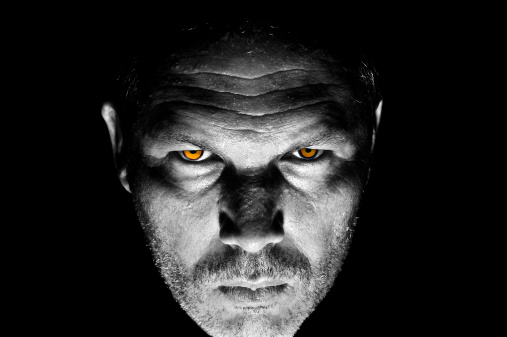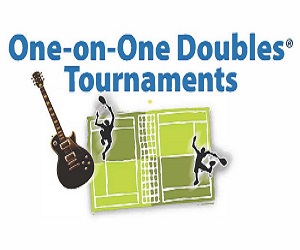The Mental Game

Tennis is often referred to as a "mental sport.” It is true, of course, but what really makes it such a challenging and unique sport? Apart from the obvious of tennis being an individual sport and no coaching is allowed, it is a sport that constantly tests your nerves, week-in, week-out, and it is a very challenging task to play at a consistently high level. Very few manage to do this, and in this article, I will attempt to write about some mental aspects of the game.
Anyone who had a playing career has experienced the trickiness and intricacies of the sport. There is an old tennis phrase that I’ve heard from my coaches and from my days of playing more than 1,000 pro matches: “You never own the game and you cannot take anything for granted in this beautiful, but sometimes frustrating, game.” One day, you are playing great, hitting the ball crisply and feeling light on the court. The next day, you could feel sluggish, heavy on the court and shanking balls all over the place.
1. Learning to not cry over spilled milk
One of the things that makes tennis a tough sport mentally is the nature of the game. It is a game of errors and most points end with someone missing a shot. Every lost point is a mini-failure, and a player has to put their bad points behind them and start every new point with a positive attitude. The ability to put the last point behind you is essential. This works the other way as well, as you should not celebrate a great shot with too much exuberance. That one great shot is still worth only one point. Often during a match, a player will have bad patches which might cost a few games or even a set. The mental challenge is to not let the bad spell impact your confidence. You must remain calm, stick to the game plan and give yourself a chance to get back into the match. Many times, if you keep your cool, the other player will have their bad spell and you will be able to seize your opportunity to get back in the match.
2. Overcoming varied conditions without letting them impact your game
The ability to overcome adversity and changes in a match can make or break a player. We all know that tennis is not just about hitting ground strokes, serves and returns, there are many factors that can affect players. Matches can be delayed and moved to a different surface; the weather can become windy, hot, humid or cold; your opponent might be calling the lines really tight; the ref is blind … etc. All of the above are opportunities to bail out mentally can be used as an excuse. I have witnessed many good players who cannot make the proper adjustments and let things that have nothing to do with tennis get into their head.
My old coach used to train and prepare me to thrive under those types of conditions. He used to tell me, "The worse off the conditions, the better it is for you because the other player will go nuts while you will use these conditions to your advantage.” As a coach, I remind my students that whatever the conditions are, they are the same for their opponent (something that they tend to forget sometimes). I also try to tell them to adjust to the conditions rather than fight them and get frustrated. This way, you can use the conditions to your advantage.
3. The ability to bring what you did in practice to a real match
The tennis world consists of two types of players―the ones who play better in practice and the ones who play better in real matches. Many times, players cannot perform during matches as they do in practice. They tighten up, their shots fall short and the swing is all of a sudden not as smooth as it once was. The $1 million question is: “How do we get the player to perform as they do in practice?” The answer is, of course, more practice and repetition drills until the shots become second nature. There are also mental exercises that can be done to get into that loose and instinctive mode that we want. I used to utilize visualization exercises. I simply visualized myself hitting perfect, free-flowing shots which I know I have done in practice. I would do it during the changeover. Other techniques that worked for me were to focus on breathing constantly between points and always being bouncy on my feet before the points started. I found that moving around made me looser. Being aware of the situation is a big part of tennis, and as a coach, I make kids aware of what’s happening to their game when they "choke" and how to deal with it when met with these adverse situations. If the child knows what to expect and has an idea of how to deal with the situation, he or she might be able to overcome the demons and work out of the situation accordingly.
4. The ability to close out matches
This is a huge issue that haunts almost every player on Earth at one point or another in their career. We have all been there … you play a perfect match for nearly two sets, have your opponent where you want them and you are serving for the match. All of a sudden, things begin to go wrong. Your opponent hits a few good shots as they are loose and have nothing to lose. You start to play tentatively and passively. Balls begin to fall short, and before you know it, the momentum has shifted and you see the match slip away. In tennis, unlike other ball sports, you cannot milk the clock when you have the lead. You actually need to keep the pressure on until the last point and waiting for your opponent to fold is not a strategy.
Early in my career, I had a period of a few months in which I couldn’t close out matches. I was on the verge of beating players who were very highly-ranked and I was playing very good tennis, but match after match, the pattern repeated itself … I would build up a nice lead only to see the match slip away due to the lack of a "killer instinct" in the big points. As soon as I was up, I started to play "not to lose" instead of "to win.”
To work on how to close out a set or a match, I would simulate tight situations in practice and purposely play more aggressive―attacking on the big points. It took me a few matches to get it right, but once I put together a couple of close wins, my confidence came back and I emerged from my slump.
5. Playing smart and using your brain to get inside of your opponent’s head
The purest form of being mentally strong is playing a smart game. A smart player will use their intelligence to win points. The ability to detect your opponent’s weaknesses early in the match is a mental strength, so is picking the right strategy against different players. A smart player will find the right strategy early in the game, and if it works, they will stick with it, just like the old Bill Tilden quote: "Never change a winning game, always change a losing game.” It sounds obvious, but many times, I see my students play a certain way which works for them only to see them stray away from what worked while letting their opponent back in the match. Playing a smart game will not only win you more points, but it will also demoralize your opponent and get inside their head.






